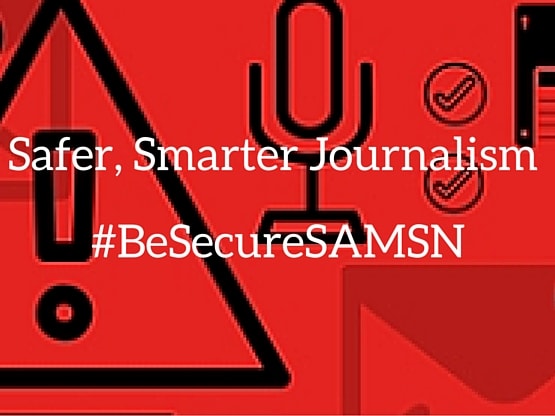The results of the Digital Security Survey of Journalists in South Asia show that the use of technology and digital resources among journalists in South Asia is abundant, yet there is an overwhelming lack of knowledge.
This statement was originally published on samsn.ifj.org on 25 May 2016.
Journalists and bloggers in South Asia are increasingly at risk of press freedom violations and security threats. Given these challenges in today’s age of online communications, digital security has become one of the primary concerns journalists face. The results of the Digital Security Survey of Journalists in South Asia show that the use of technology and digital resources among journalists in South Asia is abundant, yet there is an overwhelming lack of knowledge. Use of many of the widely available strategies and tools that can increase digital safety.
In April 2016, the International Federation of Journalists (IFJ) and the South Asia Media Solidarity Network (SAMSN) conducted the Digital Security Survey of Journalists in South Asia. The purpose of this survey is to assess the understanding and awareness of digital security among journalists. There were 176 responses from eight countries, including Afghanistan, Bangladesh, Bhutan, India, Maldives, Nepal, Pakistan and Sri Lanka participated in the survey. The respondents represent a range of journalists working for newspapers, online, TV, radio and more.
The survey led to the following key findings:
- Password security for email and social media accounts is a major concern. Journalists’ emails are sensitive, yet half of the South Asian journalists who use organizational email addresses never change the default password. Two-thirds of journalists rarely or never change their passwords. One out of every 5 journalists does not use secure passwords and shares passwords with colleagues. Nearly one-third of journalists in South Asia do not lock their phone despite containing large amounts of sensitive data.
- Although encryption easily protects emails, one-third of South Asian journalists never encrypt emails. Internet browsers such as Chrome, Firefox or Safari track internet viewing history, and nearly half of the journalists indicated that they are unaware of or do not use tools to clean or hide browsing history.
- For more than one-third of journalists in South Asia, digital security violations is the biggest threat, yet more than two-thirds of journalists lack knowledge and training on digital security. Nine in 10 journalists think that they need orientation or training on digital security, as it is a big concern in the region.
The results of this survey help to identify a major gap that exists between journalists’ use of digital technology and journalists’ use of best practices in digital safety and security. As all journalists use digital resources in their work, it’s imperative for them to receive proper training and orientation on digital safety and implement the existing tools and safety measures into their everyday life.
The survey is part of Safer, Smarter Journalism, a week-long digital security campaign to build digital security awareness and skills for South Asia’s journalists.



